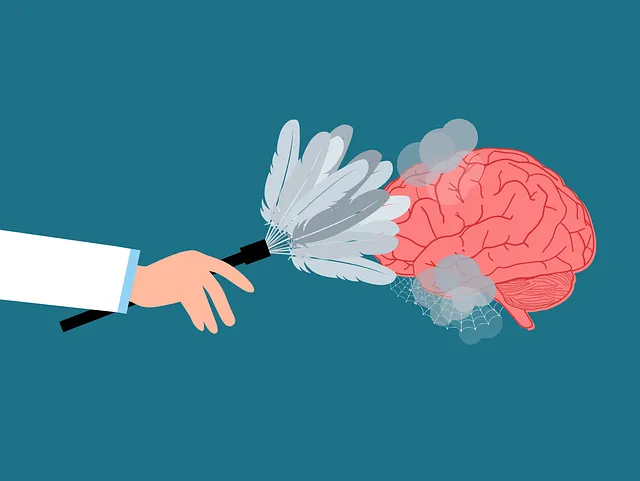Kaiser Permanente's inpatient mental health services in Golden offer specialized trauma care through evidence-based practices and tailored therapeutic approaches, emphasizing inner strength development. Their comprehensive program, featuring personalized treatment plans, safe environment, and community engagement strategies, empowers individuals to overcome trauma and promote long-term mental wellness. Accessing these services, like inpatient care and holistic programs, is crucial for effective trauma recovery and shaping society's response to mental health challenges.
Trauma is a pervasive issue with profound implications, affecting individuals across diverse demographics. This article delves into the critical domain of trauma support services provision, focusing on understanding its far-reaching impacts and exploring best practices in care. We examine Kaiser’s inpatient mental health services as a case study, analyzing golden rules and innovative approaches. Additionally, we guide readers through navigating trauma care and enhancing support systems, highlighting the importance of community engagement for effective recovery. Key keywords: trauma support, Kaiser inpatient mental health, golden rules, innovation, community engagement.
- Understanding Trauma and Its Impact: A Comprehensive Overview
- Kaiser's Inpatient Mental Health Services: An Analysis of Golden Rules and Practices
- Accessing Support: Navigating Trauma Care for Effective Recovery
- Enhancing Support Systems: Innovations in Trauma Treatment and Community Engagement
Understanding Trauma and Its Impact: A Comprehensive Overview

Trauma is a profound and complex experience that can have lasting effects on an individual’s mental health and overall well-being. It stems from various sources, such as violent or abusive situations, natural disasters, or traumatic events, leaving individuals with emotional, psychological, and sometimes physical scars. Understanding trauma involves recognizing its multifaceted nature and the unique ways it manifests in different people.
The impact of trauma can be severe, affecting not just the present but also shaping future interactions and behaviors. Common symptoms include anxiety, depression, flashbacks, nightmares, and a heightened sense of vulnerability. Kaiser’s inpatient mental health services play a crucial role in providing specialized care for individuals grappling with trauma. These programs offer a safe space for healing, incorporating evidence-based practices and therapeutic approaches tailored to address the specific needs of each patient. With a focus on mental wellness coaching, self-esteem improvement, and anxiety relief, Kaiser’s comprehensive approach aims to empower individuals to overcome their traumatic experiences and foster resilience.
Kaiser's Inpatient Mental Health Services: An Analysis of Golden Rules and Practices

Kaiser’s Inpatient Mental Health Services stand out as a cornerstone of their commitment to mental health awareness. These services, designed for intensive care, are governed by a set of golden rules and practices that prioritize patient safety, comfort, and recovery. The approach focuses on building patients’ inner strength development through individualized treatment plans, leveraging evidence-based therapies, and fostering an environment conducive to healing.
The provision of inpatient mental health care by Kaiser underscores their role in shaping public awareness campaigns development. By offering comprehensive services, they not only cater to immediate needs but also contribute to long-term mental wellness within communities. This holistic approach ensures that individuals receive the support they need, ultimately impacting society’s broader understanding and response to trauma and mental health challenges.
Accessing Support: Navigating Trauma Care for Effective Recovery

Accessing support is a crucial step in navigating trauma care for effective recovery. Organizations like Kaiser Permanente offer comprehensive mental health services, including inpatient care, making it easier for individuals to receive the necessary treatment. The availability of such resources ensures that those struggling with trauma-related issues can access specialized care promptly.
When considering trauma support, it’s essential to explore various options and choose a program tailored to individual needs. Mental Health Education Programs designed with a holistic approach can empower individuals through self-esteem improvement and the development of a robust self-care routine. This multifaceted strategy not only enhances overall mental health but also provides enduring tools for managing traumatic experiences.
Enhancing Support Systems: Innovations in Trauma Treatment and Community Engagement

Trauma support services have evolved significantly, with innovations aimed at enhancing community engagement and improving treatment outcomes. One notable example is Kaiser’s inpatient mental health services, known for their comprehensive approach to trauma care. By providing specialized units and teams of experts, Kaiser offers a safe and supportive environment where individuals can heal from the profound effects of traumatic experiences.
Moreover, these advancements in trauma treatment are complemented by increased community engagement strategies. Local initiatives focus on Depression Prevention and Burnout Prevention among mental health professionals, recognizing the importance of robust support systems for both providers and their clients. Effective risk management planning is also integral to ensuring the well-being of those working in this field, thereby indirectly enhancing services for individuals seeking trauma support.
Trauma support services have evolved significantly, with organizations like Kaiser leading the way through innovative inpatient mental health practices. By understanding trauma’s profound impact and navigating care effectively, we can enhance support systems and foster meaningful recovery. The golden rules outlined in this article serve as a guide, emphasizing the importance of comprehensive approaches that engage both individuals and communities. Moving forward, continued focus on these strategies will ensure better outcomes for those affected by trauma.






